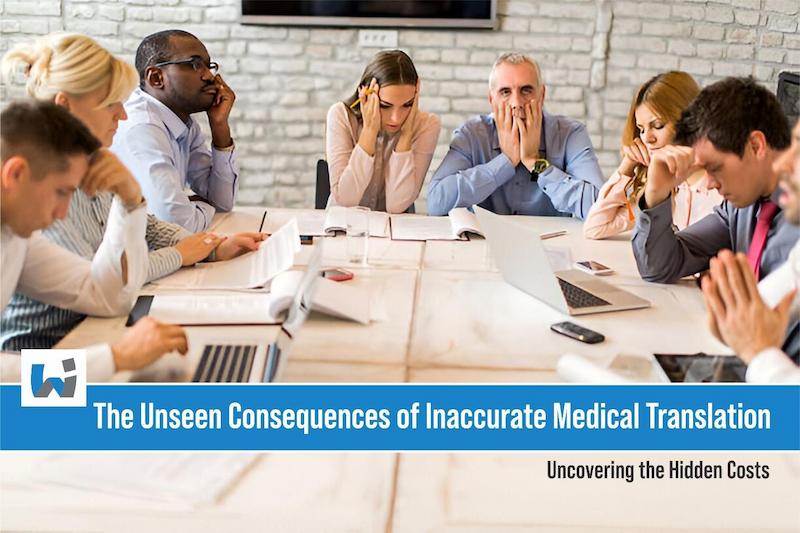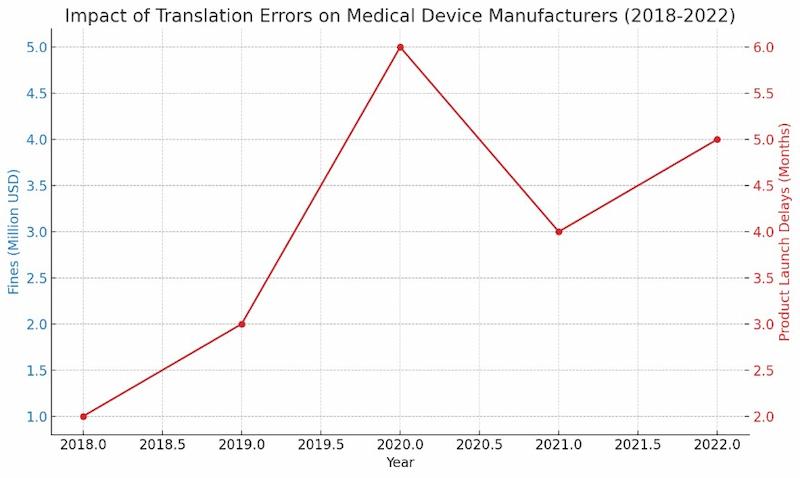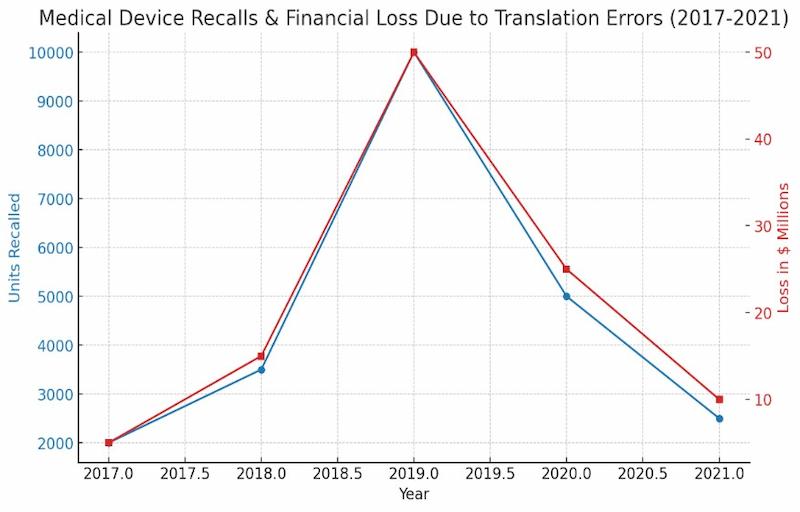
Medical translation plays a pivotal role in ensuring linguistic and cultural equivalence, facilitating seamless communication between healthcare professionals, patients, and regulatory bodies across diverse linguistic and geographic landscapes. However, the repercussions of inaccurate translations can be catastrophic, compromising patient safety, jeopardizing regulatory compliance, and undermining the integrity of clinical trials and research studies. The nuances of medical translation demand expertise in linguistics, pharmacology, and biomedical sciences to navigate the complex regulatory landscape and mitigate risks associated with translational errors.
Linguistic validation
Cultural adaptation
Regulatory compliance
Clinical trial management
Pharmacovigilance
Biomedical informatics
Inaccurate medical translations can lead to compliance issues, resulting in severe consequences.
Fines and penalties (e.g., FDA's maximum fine of $10 million)
Reputational damage and loss of credibility
Delayed product approvals and launches
Increased regulatory scrutiny
In 2020, a medical device manufacturer received an FDA warning letter due to translation errors, resulting in a $5 million fine and delayed product launch.

Product recalls due to translation errors can incur significant financial losses.
Average recall cost: $10 million to $100 million
Liability lawsuits and insurance claims
Patient harm and potential fatalities
Reputational damage and loss of business
In 2019, a medical device manufacturer recalled 10.000 units due to translation errors, incurring a $50 million loss.

Inaccurate medical translations can lead to lawsuits and settlements.
Lawsuits and settlements (e.g., $20 million awarded in 2022)
Patient harm and compensation claims
Reputational damage and loss of business
Increased insurance premiums
A court ruled in favor of a patient who suffered harm due to translation errors, awarding $15 million in damages.
Poor medical translation can damage a company's brand reputation and credibility.
- Loss of market share and revenue growth
- Employee morale and retention issues
- Reduced competitiveness
- Decreased patient trust
85% of healthcare professionals consider brand reputation when selecting medical devices.
Inefficient translation processes can result in delayed product launches and wasted resources.
Delayed time-to-market (average 6-12 months)
Increased costs and resource waste (up to 30%)
Workflow disruptions and productivity losses
Missed business opportunities
Implementing efficient translation processes reduced costs by 25% for a pharmaceutical company.
Inaccurate medical translations can have devastating consequences for patients.
Patient harm and misdiagnosis (25% of medical errors)
Treatment errors and adverse reactions
Reduced health outcomes and quality of life
Increased morbidity and mortality rates
Translation errors contributed to 30% of medication errors in a 2020 study.
Inaccurate translations can compromise intellectual property (IP) rights.
Patent and trademark infringement
Confidentiality breaches
Loss of competitive advantage
Damage to reputation
A pharmaceutical company's IP was compromised due to translation errors, resulting in a $10 million lawsuit.
Effective medical translation facilitates global market expansion.
Increased market share and revenue growth (up to 20%)
Enhanced competitiveness
Improved patient outcomes
Regulatory compliance
A medical device manufacturer expanded into 10 new markets with accurate translation services.
Translation management systems (TMS) optimize medical translation processes.
Streamlined workflows (up to 40% reduction)
Reduced costs and increased efficiency (up to 30%)
Improved quality and accuracy
Enhanced collaboration
Implementing a TMS reduced translation costs by 35% for a pharmaceutical company.
To mitigate the risks associated with inaccurate medical translation:
Collaborate with specialized translation services
Implement quality control processes
Utilize technology (TMS, AI)
Conduct regular audits and reviews
The hidden costs of poor medical translation are staggering, compromising patient safety, regulatory compliance, and business success. Investing in quality medical translation services is crucial to mitigating these risks. By prioritizing accuracy and precision, healthcare organizations can ensure regulatory compliance, protect patient safety, maintain brand reputation, and optimize operational efficiency.
